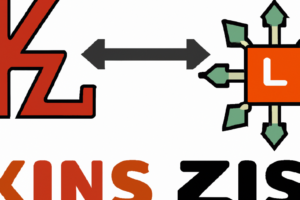Unanimous Approval: A Major Step Forward for Blockchain Legislation in the U.S.
In an unprecedented move that has sent ripples of excitement through the tech world, the U.S. House Committee has unanimously approved a bill that strongly supports the development and implementation of blockchain technology. This decision signifies a monumental shift in the U.S. government's stance towards this revolutionary technology, and is anticipated to catalyze a new era of innovation and growth within the blockchain industry. The bill, dubbed the ‘Blockchain Promotion Act of 2021', seeks to establish a common definition of ‘blockchain' at the federal level and recommends its use across various sectors.
This article will delve into the specifics of the ‘Blockchain Promotion Act of 2021', exploring its potential implications on the U.S. technology landscape and the global blockchain industry. It will also shed light on the reasons behind the unanimous approval of the bill, highlighting the key benefits of blockchain technology that were instrumental in swaying the House Committee's decision. Furthermore, it will examine the potential challenges and criticisms associated with the bill, providing a balanced perspective on this landmark development.
1. Unanimous Approval of Pro-Blockchain Bill
The U.S. House Committee has unanimously approved a bill that supports the development and implementation of blockchain technology. This marks a significant step towards the integration of blockchain within the U.S. government's operations and regulatory frameworks.
2. Encouraging Innovation and Development
The bill aims to encourage innovation and development in blockchain technology. It recognizes the potential of blockchain to improve various sectors, including finance, supply chain, and public administration, and seeks to create a conducive environment for the technology's growth and adoption.
3. Regulatory Clarity for Blockchain
The bill provides regulatory clarity for blockchain technology, which has long been a gray area. It defines key terms related to blockchain and provides guidelines for its use, offering much-needed legal certainty for developers, businesses, and users in the blockchain space.
4. Potential Economic Impact
The adoption of the pro-blockchain bill could have a significant economic impact. By fostering innovation and development in blockchain, the bill could create new jobs, stimulate economic growth, and position the U.S. as a leader in the global blockchain industry.
5. Future Implications for Blockchain
The unanimous approval of the bill by the U.S. House Committee signals a positive future for blockchain technology. It suggests a growing acceptance and understanding of blockchain among lawmakers, which could lead to further legislative support and advancements in the technology.
Legislative Support Bolsters Blockchain Innovation
The unanimous approval of the pro-blockchain bill by the U.S. House Committee signifies a significant shift in legislative sentiment towards the technology. The bill, which seeks to establish a common definition for blockchain at the federal level, could pave the way for more streamlined regulations and foster an environment conducive to innovation. This legislative support could potentially attract more tech companies to invest in the development of blockchain technology, leading to an industry-wide acceleration in its adoption.
The bill also mandates the Department of Commerce and the Federal Trade Commission to put together a report detailing blockchain's potential impact on U.S. industry. This signifies a recognition of the technology's transformative potential and could lead to a more informed, nuanced approach to its regulation. The report, once published, could serve as a blueprint for future legislative and regulatory actions, providing much-needed clarity and direction for industry players.
Boosting Industry Confidence and Investment
The unanimous approval of the bill sends a strong signal to the market about the U.S. government's commitment to blockchain technology. This could significantly boost investor confidence, leading to an increase in capital inflow into the sector. The bill's passage could also encourage traditional financial institutions and venture capital firms to invest more heavily in blockchain startups, further fuelling the industry's growth.
Moreover, the bill's provisions could help mitigate some of the risks associated with investing in blockchain technology. For instance, the requirement for a federal definition of blockchain could help eliminate regulatory uncertainty, a major roadblock for many potential investors. This could lead to a more stable, predictable investment environment, fostering long-term growth in the sector.
Advancing U.S. Global Leadership in Blockchain Technology
The pro-blockchain bill could position the U.S. as a global leader in blockchain technology. By creating a supportive legal framework, the U.S. could attract blockchain startups from around the world, bolstering its status as a global tech hub. This could lead to an influx of talent and ideas, further enhancing the country's competitive advantage in the field.
The bill also has the potential to influence global regulatory standards for blockchain technology. As one of the world's largest economies, the U.S.'s approach to blockchain regulation could set a precedent for other countries, shaping the global regulatory landscape. This could lead to greater international cooperation and standardization in the field, facilitating cross-border blockchain initiatives and partnerships.
Historic Approval: The Unanimous Decision
In a historic move, the U.S. House Committee has unanimously approved a pro-blockchain bill, signaling a significant shift in the government's stance towards this groundbreaking technology. The bill, known as the Blockchain Innovation Act, seeks to promote the use of blockchain technology across various sectors, and is a testament to its growing acceptance in the mainstream. This section will delve into the specifics of the vote, the lawmakers involved, and the immediate reaction from the blockchain community.
Details of the Blockchain Innovation Act
The Blockchain Innovation Act plays a crucial role in the establishment of a common framework for the use of blockchain technology in the United States. This section will break down the key aspects of the bill, such as its provisions for a Federal Blockchain Program, the role of the Department of Commerce, and its implications for consumer protection. Additionally, we will explore the potential impact on industries such as finance, healthcare, and supply chain management.
Implications for the U.S. Economy
The unanimous approval of the Blockchain Innovation Act could have far-reaching implications for the U.S economy. This section will examine the potential economic benefits of widespread blockchain adoption, such as increased efficiency, reduced costs, and the creation of new jobs. We will also discuss the potential challenges, including regulatory hurdles and the need for widespread digital literacy.
Case Study: Blockchain in Action
To illustrate the potential of blockchain technology, this section will present a case study of a company that has successfully integrated blockchain into its operations. We will delve into the specifics of how the company uses blockchain, the challenges they encountered during implementation, and the benefits they have experienced as a result.
International Perspective: U.S. vs. Global Blockchain Adoption
While the U.S. is making strides in promoting blockchain technology, it is not alone in this endeavor. This section will compare and contrast the U.S.'s approach to blockchain with that of other countries, including China and the European Union. We will discuss the different regulatory environments, the level of blockchain adoption, and the potential for international collaboration in the blockchain space.
Future Outlook: The Road Ahead for Blockchain in the U.S.
The approval of the Blockchain Innovation Act is just the beginning of the U.S.'s journey towards widespread blockchain adoption. This section will discuss the potential future of blockchain in the U.S., including the possible legislative and technological developments. We will also explore the views of industry experts and their predictions for the future of blockchain in the U.S.
The Role of Blockchain in the Public Sector
The public sector stands to gain significantly from the adoption of blockchain technology. This section will discuss the potential applications of blockchain in government, from improving the transparency of public spending to securing electoral processes. We will also highlight the potential challenges and the steps needed to overcome them.
Blockchain and Cybersecurity: A New Frontier
Blockchain technology has the potential to revolutionize cybersecurity. This section will delve into the ways in which blockchain could enhance data security, including the use of decentralized networks and cryptographic algorithms. We will also discuss the potential challenges, including the need for robust regulatory frameworks and the risk of quantum computing.
Legislative Framework
The bill in question, referred to as the ‘Blockchain Innovation Act', was unanimously passed by the U.S. House Committee on Science, Space, and Technology. This bill aims to create a regulatory framework that encourages the growth and development of blockchain technology within the United States. It requires the Secretary of Commerce and the Federal Trade Commission (FTC) to jointly conduct a study and submit a report to Congress on the state of blockchain technology, its use in commerce, and its impact on consumer privacy and security.
Implications for Blockchain Development
The approval of the bill is a significant step towards the broader adoption of blockchain technology in the U.S. By mandating a study into the current state and potential applications of blockchain, the bill recognizes the technology's potential and seeks to foster its development. This could lead to increased investments in blockchain projects and startups, potentially driving innovation in this sector.
Consumer Privacy and Security
A key aspect of the bill involves assessing the impact of blockchain technology on consumer privacy and security. Given the decentralized nature of blockchain, it offers potential benefits in terms of enhanced security and privacy. However, it also raises concerns over data protection and misuse. The study mandated by the bill will delve into these issues, providing insights that could inform future regulations and guidelines.
Role of the Federal Trade Commission (FTC)
The FTC's involvement in the study is significant, given its role in protecting consumers and promoting competition. The FTC's insights into how blockchain can be used or misused in commerce will be crucial in shaping the future regulatory landscape. The agency's expertise in consumer protection will also help ensure that the benefits of blockchain are realized without compromising consumer rights and safety.
Impact on Interstate Commerce
The bill also calls for an examination of how blockchain technology can impact interstate commerce. Blockchain has the potential to streamline and secure transactions, making it a powerful tool for commerce. By exploring this aspect, the bill aims to understand how blockchain can be harnessed to promote economic growth and efficiency.
Future Regulatory Landscape
The passage of the bill signifies a shift towards a more supportive regulatory environment for blockchain in the U.S. The insights gleaned from the mandated study will likely shape future regulations, potentially creating a more favorable environment for blockchain development. This could have far-reaching implications, from the growth of blockchain startups to the broader adoption of the technology in various sectors.
International Implications
The U.S. is a major player in the global tech scene, and its stance on blockchain will likely influence international trends. The passage of this bill could encourage other countries to adopt similar measures, fostering a global environment conducive to blockchain development. However, it also raises questions about international cooperation and standards, particularly in terms of data protection and security.
The Genesis of Blockchain
The concept of blockchain technology was first introduced in 2008 as the underlying technology of Bitcoin, a cryptocurrency created by an anonymous entity known as Satoshi Nakamoto. The idea was to build a decentralized system that was secure, transparent, and resistant to fraud. The core innovation was the blockchain, a public ledger of all transaction data from anyone who participates in the network.
Blockchain Beyond Bitcoin
While Bitcoin was the first application of blockchain, people quickly realized the technology could be used for other transactions. The decentralization, security, and transparency features were attractive for a wide variety of applications. Ethereum, launched in 2015, introduced the concept of smart contracts, which are self-executing contracts with the terms of the agreement directly written into code. This opened up possibilities for using blockchain technology beyond cryptocurrencies.
Regulatory Challenges and Blockchain
As blockchain technology started to gain traction, it faced significant regulatory challenges. The decentralized nature of the technology, while one of its biggest strengths, also posed risks and challenges. Regulators around the world grappled with how to deal with this new technology, with reactions ranging from outright bans to welcoming it with open arms. In the U.S., the regulatory landscape was fragmented, with different agencies having different views on how blockchain should be regulated.
The U.S. Regulatory Shift
In recent years, there has been a shift in the U.S. regulatory approach towards blockchain technology. This shift was marked by the U.S. House Committee's unanimous approval of a pro-blockchain bill. The bill, dubbed the ‘Blockchain Promotion Act of 2019', was designed to establish a common definition of ‘blockchain' at the federal level and recommend opportunities to leverage the technology. This was a significant milestone, signaling a more favorable regulatory environment for blockchain technology in the U.S.
Blockchain in the U.S. Today
Today, the U.S. is home to a thriving blockchain ecosystem. The technology is being used in a variety of sectors, from finance to healthcare, and the number of blockchain-related jobs has been on the rise. The pro-blockchain bill's approval has played a significant role in this growth, providing a more predictable and favorable regulatory environment for businesses and entrepreneurs in the blockchain space. The bill's approval also signaled the U.S. government's recognition of the potential of blockchain technology, further boosting the sector's growth.
The Future of Blockchain in the U.S.
Looking ahead, the future of blockchain technology in the U.S. looks promising. With the regulatory environment becoming more favorable, businesses and entrepreneurs are likely to continue exploring innovative uses for the technology. The U.S. government's recognition of the potential of blockchain could also lead to more public sector applications of the technology, further driving its adoption. However, as with any new technology, there will be challenges and uncertainties along the way. But the unanimous approval of the pro-blockchain bill suggests that the U.S. is committed to fostering a supportive environment for blockchain technology's growth and development.
Case Study 1: The Wyoming Blockchain Revolution
In the wake of the U.S. House Committee's unanimous approval of a pro-blockchain bill, one should look towards the state of Wyoming for a successful implementation of blockchain technology. Wyoming has been a pioneer in embracing blockchain technology and has passed a series of laws that have not only attracted blockchain startups but also established it as a leader in blockchain legislation.
One such law, House Bill 70, also known as the “Utility Token Bill,” allows blockchain companies to operate in a regulatory environment that recognizes the unique nature of blockchain and avoids the overregulation that can stifle innovation. This law has attracted significant blockchain companies like Cardano, which moved to Wyoming due to its blockchain-friendly environment.
Furthermore, Wyoming launched a blockchain-based land records platform in Teton County, which digitizes and streamlines the process of recording and retrieving land records. The system, developed by Medici Land Governance, a subsidiary of Overstock.com, has proven to be more efficient and reliable than traditional methods, demonstrating the practical benefits of blockchain technology.
Case Study 2: The Illinois Blockchain Initiative
Another case study that illustrates the potential of pro-blockchain legislation is the Illinois Blockchain Initiative. Launched in 2016, the initiative aimed to understand how the state government can benefit from blockchain technology.
One of the initiative's notable successes is the birth certificate pilot project. In partnership with Evernym, a blockchain technology company, the state developed a system that allows citizens to securely access and share verifiable birth certificates. The system uses decentralized identifiers, ensuring that personal data remains private and secure.
The Illinois Blockchain Initiative also led to the creation of the Chicago Blockchain Center, a public-private partnership that promotes blockchain education, innovation, and development. These efforts have made Illinois a hub for blockchain startups and innovation.
Success Story: The FDA and IBM's Blockchain Partnership
In the healthcare sector, the U.S. Food and Drug Administration (FDA) partnered with IBM Watson Health to explore the use of blockchain technology for secure patient data exchange. The aim was to create a scalable health information exchange that can securely share patient data in real-time, improving the quality of care and patient safety.
The partnership resulted in a successful pilot project that demonstrated the potential of blockchain in healthcare. The system allows data from various sources, including electronic health records, clinical trials, and health data from wearables, to be available in a secure, decentralized, and interoperable manner.
The success of this project illustrates the potential impact of the U.S. House Committee's pro-blockchain bill. By providing a regulatory framework that supports the use of blockchain technology, other sectors like healthcare can leverage the technology to improve their services and operations.
1. What is the ‘Blockchain Boost: U.S. House Committee Unanimously Approves Pro-Blockchain Bill' about?
This bill is about promoting the use and development of blockchain technology in the United States. It was unanimously approved by the U.S. House Committee, signaling strong bipartisan support for blockchain technology.
2. Who proposed this pro-blockchain bill?
The bill was proposed by U.S. Representative Tom Emmer, a known advocate for cryptocurrency and blockchain technology. The bill received unanimous support from the House Committee on Financial Services.
3. What are the key provisions of this bill?
Key provisions of the bill include encouraging federal agencies to use blockchain technology, promoting private sector creation and adoption of blockchain technology, and providing a regulatory framework for blockchain technology.
4. How will this bill impact the blockchain industry in the U.S.?
The bill is expected to provide a significant boost to the blockchain industry in the U.S. by creating a favorable regulatory environment and encouraging both public and private sector adoption of the technology.
5. Does the bill address any specific blockchain applications?
While the bill does not specify any particular applications of blockchain, it encourages the federal agencies to adopt and use blockchain technology in their operations. This could include applications in supply chain management, data security, and financial transactions among others.
6. How will this bill affect cryptocurrency regulation?
The bill does not directly address cryptocurrency regulation. However, by providing a regulatory framework for blockchain technology, it could indirectly influence the regulatory environment for cryptocurrencies, which are built on blockchain technology.
7. What is the next step for this bill?
Having been approved by the House Committee, the bill will now go to the full House of Representatives for consideration. If it passes the House, it will then need to be approved by the Senate before it can be signed into law by the President.
8. What has been the response from the blockchain industry to this bill?
The blockchain industry has generally responded positively to this bill, viewing it as a step forward in recognizing and legitimizing blockchain technology. The bill's emphasis on promoting private sector innovation in blockchain technology has been particularly well-received.
9. How does this bill compare to blockchain regulation in other countries?
Compared to other countries, this bill represents a proactive and positive approach towards blockchain technology. Many countries are still in the early stages of developing regulatory frameworks for blockchain, and this bill could potentially position the U.S. as a leader in this area.
10. What are the potential challenges in implementing this bill?
Potential challenges could include resistance from those unfamiliar with blockchain technology, technical difficulties in implementing blockchain solutions in federal agencies, and potential conflicts with existing regulations.
Unlocking the Potential of Blockchain
1. Get Educated
Immerse yourself in understanding the blockchain technology. Read books, watch videos, take online courses, and attend webinars or seminars. This will give you a solid foundation on the subject and help you understand how this technology can be applied in various industries.
2. Join Blockchain Communities
Participating in blockchain communities can be a valuable source of information and networking. These communities often have experts who can provide insights and answer your questions. You can join local meetups, online forums, or social media groups.
Investing in Blockchain
3. Understand the Risks
Like any investment, blockchain also comes with its set of risks. It's important to understand the volatility of the market and to invest only what you can afford to lose. Always do your due diligence before making any investment decisions.
4. Diversify Your Portfolio
Don't put all your eggs in one basket. Investing in a variety of blockchain projects can help spread the risk. Look for projects with solid fundamentals and a strong team behind them.
Blockchain in Business
5. Identify Potential Use Cases
Think about how blockchain could be used in your business. It could be for improving supply chain transparency, enhancing data security, or enabling peer-to-peer transactions. Once you identify a use case, look for blockchain solutions that can help you achieve your goals.
6. Pilot a Blockchain Project
Start small and scale up. Implement a pilot project to understand the practical challenges and benefits. This will give you a hands-on experience of using blockchain and help you make informed decisions.
Staying Updated with Blockchain Developments
7. Follow Blockchain News
Stay updated with the latest developments in the blockchain world. Follow reputable news outlets, subscribe to newsletters, and keep an eye on legislative updates.
8. Attend Blockchain Events
Blockchain conferences, seminars, and webinars are great platforms to learn about the latest trends, network with industry experts, and discover new opportunities.
Building a Career in Blockchain
9. Learn Blockchain Coding
If you're interested in a technical career in blockchain, learning to code can be a great start. There are many online resources available to learn languages like Solidity used for writing smart contracts.
10. Get Certified
Consider getting a blockchain certification. It can enhance your credibility and open up new opportunities. Numerous institutions offer certifications in blockchain technology and related fields.
Concluding Remarks on Blockchain Boost
The unanimous approval of the pro-blockchain bill by the U.S. House Committee signifies a pivotal moment in the integration of blockchain technology into the country's regulatory framework. The bill, which seeks to foster innovation and growth within the blockchain industry, will not only create a conducive environment for blockchain businesses but also position the United States as a global leader in blockchain technology. This move demonstrates the government's commitment to embracing technological advancements, which is a significant step towards ensuring that the U.S. remains competitive in the rapidly evolving digital space.
Moreover, the approval of the bill is expected to stimulate economic growth by attracting investments and creating job opportunities in the blockchain sector. It will also provide a clear legal framework for blockchain businesses, thereby reducing uncertainties and fostering confidence among stakeholders. The unanimous decision by the U.S. House Committee underscores the bipartisan support for blockchain technology, and sets the stage for the full House to pass the bill. The approval of this bill is a testament to the potential of blockchain technology and its far-reaching implications on various sectors of the economy.

George Smith, with over a decade in tech journalism, excels in breaking down emerging tech trends. His work, spanning tech blogs and print, combines in-depth analysis with clarity, appealing to a wide readership. George's pieces often explore technology's societal impact, showcasing his foresight in industry trends.







